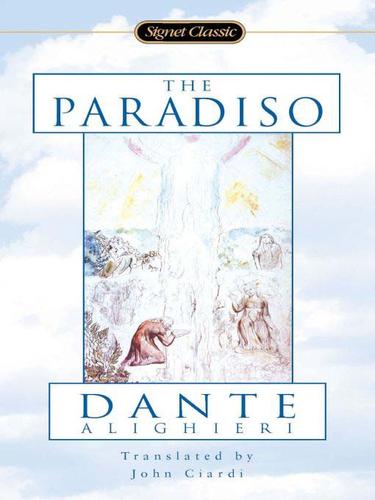4thace reviewed The Paradiso by Dante Alighieri
Review of 'The Paradiso' on 'Goodreads'
4 stars
This is my second time reading this, and I think that because I knew how it was structured I was able to enjoy it better this time. The otherworldly preoccupations of Dante do not match the typical ones of our worldly time. The flamelike souls he encounters assemble into elaborate patterns as if this fourteenth century poet knew about computer graphics, as a sort of extension of the very last section of Purgatorio where he describes the allegorical pageant in Eden. And through it all, Dante's inspiration for his journey, Beatrice, becomes more and more idealized until she ends up as little more than an enraptured smile in the realm of the Empyrean. This is rarefied fare for the modern reader raised upon realism and natural depictions in literature. This is the least prosaic sections of the epic poem, and it might help to think of it in specifically non-prose terms, as if it were a very long song lyric maybe, where our expectations of what makes for a satisfying experience is not tied in with the same kind of storytelling tradition.
Along with the allegory comes a large helping of Scholastic philosophy, of medieval orthodoxy, and ecclesiastical inside politics. If we pay attention to the people who are described here, we recall that this is being written at the tail end of the centuries of Crusades, when the temporal power of the Church was close to its highest point. This can be a problem for many readers, and not even only the unbelievers. It can be a hard read for someone who is not already interested in saints and emperors and bishops, patriarchs and religious warriors, who fill these cantos. It's worth noting the way these encounters affect the pilgrim Dante: he becomes increasingly bedazzled, literally losing his sight at one point while witnessing these souls who now shine in the firmament. He is as star-struck as any present-day fan of celebrity might be.
I feel the best way to read Paradiso is to do it while enjoying the paintings and illuminations it has inspired over the centuries since, by Doré and Blake and Dalí and anonymous illuminators. Some of these really help convey the feeling of rapture Dante wants to instill.

